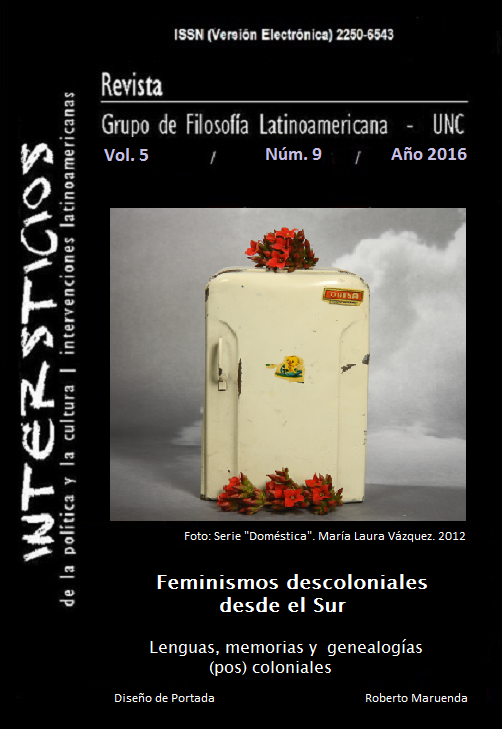The reason for my life of Evita as a sentimental practice. Paths to depatriarchy of popular reason
Keywords:
sentipensamiento, sentipensar, popular reason, colonialism, eurocentrism, patriarchyAbstract
This article tries to establish itself in two pillars: The first is a critique of the deviations from the decolonial and postcolonial current, which considers itself as the vanguard, assuming the paths of social transformation are horizons created by desktop intellectuals, and the second, is to demonstrate precisely, that there are actually decolonial practices existing since 1492, where the task is to track them down. My research led me read reason of my life and to appreciate the power of Evita’s political theory and practice, being the pioneer in the sentipensamiento (feeling-thinking), and the most important woman leader of her time.Downloads
Downloads
Published
Issue
Section
License
Authors who have publications with this journal agree to the following terms:
a. Authors will retain their copyright and grant the journal the right of first publication of their work, which will simultaneously be subject to the Creative Commons Attribution License that allows third parties to share the work as long as its author and first publication in this journal are indicated.
b. Authors may adopt other non-exclusive license agreements for distribution of the published version of the work (e.g., deposit it in an institutional telematic archive or publish it in a monographic volume) as long as the initial publication in this journal is indicated.
c. Authors are allowed and encouraged to disseminate their work through the Internet (e.g., in institutional telematic archives or on their web page) after the publication process, which may produce interesting exchanges and increase citations of the published work (see The effect of open access).


